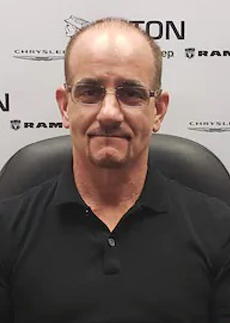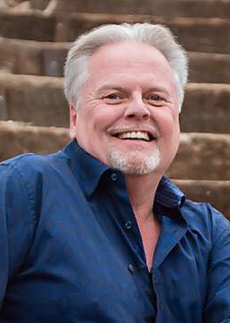One truism about our cottage industry has always been the value of partnerships and relationships between operators, vendors, financial institutions, and other businesses. It’s the after-sales support that makes or breaks a deal, right? For many operators, it took a global pandemic to truly stress-test the strength of those bonds—and to realize which relationships would not be moving forward in the future.
Longtime industry partners such as Acton/SoCal Penske have been feeling the pain alongside operators—after all, they also rely on a healthy, thriving industry as much as you rely on a robust corporate travel sector. Fleet sales didn’t gradually slow down, they came to a screeching halt. Meanwhile, they too had to balance their inventory with demand, while timing orders with OEMs that were also reducing production as COVID impacted their workforces. “We’re in it together” proved to be more than feel-good slogan.
Since March 2020, industry veterans Bill Cunningham, Greg Maddock, and Bob Moody have worked to meet the new and ever-changing challenges of the time to help frustrated and worried operators right-size their fleets and free up some operating cash. While it is their job to connect operators with metal, they’ve also built stable relationships with the industry. For them, and with the full support of Acton President Coleman Hoyt and SoCal Penske Co-CEO Phil Hartz, it was a reaffirmation of their enduring commitment to the industry they’ve been a part of for more than 30 years. We spoke with Cunningham, Maddock, and Moody about their experiences over the last year, where they are seeing some rays of hope, and what they expect 2021 will hold. >
 Bill Cunningham
Chauffeur Driven: You all have been in the industry for years. How have your longtime relationships with operators helped you to be better partners during the pandemic?
Bill Cunningham
Chauffeur Driven: You all have been in the industry for years. How have your longtime relationships with operators helped you to be better partners during the pandemic?
Bill Cunningham:
The key word is “partner,” whether it’s with a manufacturer or a customer. Greg and Bob have giant client bases that extend for decades, and customers know that if they have a problem they can get any of us on the phone. We’ve always considered our relationships with OEMs—such as Mark Leddy of Cadillac and Kim Johnston of Ford-Lincoln—to also be our partners because it has to work for both in order to ultimately work for the customer. Maybe the car has gone a little over warranty: The manufacturer knows that if we’re asking for assistance it’s because there’s a serious issue and we’re trying to keep the customer loyal to the product, not looking to benefit the store. I know it’s the same for Bob and Greg when I say that many of our customers have been guests at our homes. The “customer” part goes away, and they really have become friends. They know that we’re going to do everything we can to do right by them.
Bob Moody: Yes, that’s true. I think I sell more cars when I go home than when I’m at the dealership because my clients know they can contact me for advice or with questions at any time—and it’s about having in trust in us and knowing that we’re going to work for the best deal for them. It’s easy once you put the time in and get to know the customers in order to understand their needs and how to advise them. It’s nice to have relationships like that.
BC: But there’s a key to that: the three of us work for great people. Phil Hartz is just an unbelievable dealer, and his facilities are second to none. Bob and I have worked for Coleman for years—both are focused on building those permanent and lasting relationships rather than prioritizing the bottom line over people. We’re able to deliver for the customer thanks to their support.
 Bob Moody
CD: Operators aren’t buying as much these days, so how are you working with them?
Bob Moody
CD: Operators aren’t buying as much these days, so how are you working with them?
Greg Maddock: Everyone was in panic mode in the first 90-120 days of the pandemic to get rid of some of their fleet. It was all about equity. In many cases we could only wholesale their vehicles because of the high mileage, so we had to recommend ways to help them get these vehicles to auction or find alternatives.
BC: The value of the car isn’t determined by what they owe on the loan, but on what someone is willing to pay for it. It’s supply and demand: The more cars that are flooding the auctions, the lower the values will trend. What we’ve been recommending is to spread out the sale of their vehicles if an operator is looking to sell off 20, 30, or more so that they can get top dollar. On the Acton side, we’ve actually been buying their cars and placing them with wholesalers or selling them through the auction channels.
CD: You obviously have locations on the both the coasts and sell across the country. Are there markets that are doing better than others?
GM: About 30 days ago there was some hope in California—people were able to go out to restaurants, meet up with friends, get real haircuts—but now the state is shut down again. We’re selling more vehicles outside of California, like Florida, Texas, and Arizona, because the [COVID] restrictions aren’t quite as bad as they are here. We’re completely out of 2020 SUVs on the West Coast, so the only thing we have in stock are the MY2021 Escalades, Suburbans, and Yukon XLs. Bottom line is I don’t think cars are coming back. Everything you see on the street is either a pickup truck or a midsize or full-size SUV. I can see the [Cadillac] XT6 being a hit in this industry because it has the luggage space and the ease and comfort for the customer is there.
 Greg Maddock
BC: We’ve also seen that SUVs have a strong resale value, even if they have 100,000 miles or more. Some operators are worried about spending the extra money upfront on the larger SUVs—the Suburban, as an example—over sedans, but historically we’ve seen that they draw top dollar when it comes time to flip them. With the industry continuing to move toward SUVs, provided they are equipped the right way, there’s a value for them after the original owner is ready to trade. Customers don’t complain when operators send an Escalade or a Suburban—it’s often considered as a free upgrade, especially with the extra space and comfort level. Plus, gas is really cheap now, so they’re not wildly more expensive to operate.
Greg Maddock
BC: We’ve also seen that SUVs have a strong resale value, even if they have 100,000 miles or more. Some operators are worried about spending the extra money upfront on the larger SUVs—the Suburban, as an example—over sedans, but historically we’ve seen that they draw top dollar when it comes time to flip them. With the industry continuing to move toward SUVs, provided they are equipped the right way, there’s a value for them after the original owner is ready to trade. Customers don’t complain when operators send an Escalade or a Suburban—it’s often considered as a free upgrade, especially with the extra space and comfort level. Plus, gas is really cheap now, so they’re not wildly more expensive to operate.
GM: It’s a little different here on the West Coast since gas is more expensive. We’re also seeing an increased interest in electric vehicles with Tesla selling more than 90,000 vehicles in California last year, which is a phenomenal number. Plus, by 2035, California isn’t going to allow OEMs to sell anything other than electric vehicles, so that will impact the market. The big issue this industry is going to face is range: If you have a customer in the vehicle for eight or nine hours, you’ve got to find a way to keep that thing powered. But you’ve also got the new diesel engines coming down the pike that we’re being told will have mileage in the high 20s or low 30s. We haven’t seen them yet, but they could be another option in the near future.
CD: Many OEMs are shifting away from sedans over crossovers and SUVs. How are your customers reacting to that?
BM: In my experience, customers aren’t buying sedans at all—they are opting for SUVs especially now due to social distancing. We did start to see that shift when the [Lincoln] MKT came out, which kind of broke the ice for crossovers in our industry. But at the end of the day, I think people just want to get into a safe, reliable vehicle.
BC: We’re really lucky that General Motors has released so many updated SUVs like the brand-new Suburban, Escalade, even the XT5 and XT6. They’re all new and exciting cars.
CD: What positives have come out of the last nine months?
BC: When COVID was first in full bloom in Massachusetts last spring, we had to lay off 50-60 people. But Coleman stepped up to keep everyone on the payroll, and we’ve slowly been able to bring people back as business returned. Coleman constantly reminds me that he’d rather do less business and keep our customers and employees safe. We’ve learned a lot, we’re trying different things like requiring appointments for sales and service, and we’re finding ways to keep customer service high while maintaining a safe distance. And it’s always “mask up.”
BM: We’re definitely spending more time with family. It’s no longer about chasing that shiny new thing, but being grateful that my loved ones are healthy.
CD: When do you think we’ll start seeing a recovery?
GM: Currently, movement in the black car market is unfortunately slim to none, and the growth we’re seeing in the past few months has been with retail customers. But you do see some operators having luck with weddings and, more recently, the Christmas light tours. You’ve also seen organizations like the National Limousine Association come together to rebuild the whole platform of what the limo business really is. Until we start seeing planes in the air and concerts resuming, the black car market, I hate to say it, is going to remain low and slow.
BM: There’s a lot of uncertainty with many of our clients, but I do see a lot of optimism from them as well. If we could predict this, all our lives would be easy, right? It’s hard to say when and how long it will take to get back up to where we were, but things are going to be different for a while.
GM: We’ve also seen that lenders are very cautious. Even if you have good credit but you’ve missed one payment, we’ve seen banks passing on a deal. I think we’re going back to ’08 when it was primarily short-term financing for maybe 36 months. Yes, operators are going to pay a little more each month, but it’s about building that equity.
BC: I do think the vaccine is going to help, but it going to be many months before it has a widespread impact. Face masks and staying six feet apart are going to be with us for the foreseeable future. I’ve had friends affected by COVID, and it’s been different for everyone, so we do have to continue to take it seriously. We know we’re going to get through it, it’s just not going to be an overnight thing. [CD0121]
Q&A With the Acton/SoCal Penske Team
- Details

